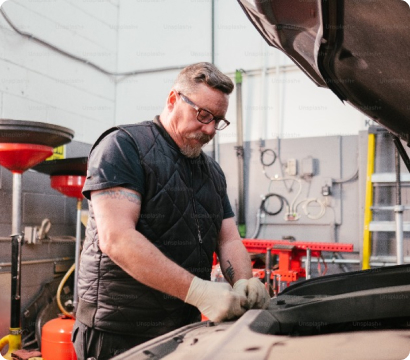Introduction
Durable auto parts are the backbone of the automotive industry, ensuring the safety, reliability, and performance of vehicles. However, both manufacturers and users face various challenges in ensuring the durability of auto parts. This article explores the challenges encountered by manufacturers and users in the realm of durable auto parts and discusses potential solutions to address these challenges.
Challenges for Manufacturers
“African decor reflects harmony with nature which is reflected in its materials.”
Jane Cooper
-
Quality Control: Maintaining consistent quality across production batches is a significant challenge for auto part manufacturers. Variations in raw materials, production processes, and equipment can lead to defects and inconsistencies in the final product.
-
Cost Management: Producing durable auto parts often requires the use of high-quality materials and advanced manufacturing techniques, which can significantly increase production costs. Balancing durability requirements with cost considerations poses a challenge for manufacturers, especially in competitive markets.
-
Regulatory Compliance: Auto part manufacturers must comply with various regulatory standards and requirements related to safety, environmental impact, and performance. Keeping up with evolving regulations and ensuring compliance adds complexity to the manufacturing process.
-
Supply Chain Disruptions: Dependence on complex supply chains makes auto part manufacturers vulnerable to disruptions such as natural disasters, geopolitical tensions, and unexpected changes in demand. Managing these risks while ensuring continuity of supply is a constant challenge.
-
Technological Advancements: Rapid advancements in technology, including automation, artificial intelligence, and additive manufacturing, present both opportunities and challenges for auto part manufacturers. Adopting new technologies requires significant investments in research, development, and retooling.

Challenges for Users
-
Reliability and Longevity: Consumers expect auto parts to be durable and reliable throughout the lifespan of their vehicles. However, factors such as poor maintenance, harsh driving conditions, and subpar manufacturing can lead to premature failure of auto parts, resulting in costly repairs and safety risks.
-
Counterfeit Parts: The proliferation of counterfeit auto parts poses a significant challenge for users, as these parts often lack the quality and durability of genuine components. Identifying and avoiding counterfeit parts requires vigilance and knowledge of reputable suppliers.
-
Compatibility Issues: Ensuring compatibility between auto parts and specific vehicle models can be challenging, especially for older or less common vehicles. Users may encounter difficulties in finding suitable replacement parts, leading to delays and higher costs for repairs.
-
Lack of Maintenance Awareness: Many users overlook the importance of regular maintenance in preserving the durability of auto parts. Neglecting routine maintenance tasks such as oil changes, brake inspections, and tire rotations can accelerate wear and tear, compromising the performance and longevity of auto parts.
-
Environmental Impact: The disposal of worn-out auto parts poses environmental challenges, as certain components contain hazardous materials that can leach into soil and waterways if not properly recycled or disposed of. Encouraging responsible disposal practices and promoting the use of eco-friendly materials are essential steps in mitigating the environmental impact of auto parts.
-
Quality Assurance Programs: Implementing robust quality assurance programs can help auto part manufacturers maintain consistent quality standards and minimize defects. This includes regular inspections, testing, and feedback mechanisms throughout the production process.
-
Collaboration and Innovation: Collaborating with suppliers, industry partners, and research institutions can foster innovation in auto part manufacturing, leading to the development of more durable and cost-effective solutions. Embracing emerging technologies such as 3D printing and predictive analytics can also enhance production efficiency and product quality.
-
Education and Awareness: Educating consumers about the importance of proper maintenance and the risks associated with counterfeit parts can empower them to make informed decisions when purchasing and servicing their vehicles. Manufacturers and industry associations can play a role in raising awareness through educational campaigns and outreach programs.
-
Sustainable Practices: Adopting sustainable practices such as recycling, waste reduction, and eco-friendly materials can help mitigate the environmental impact of auto parts throughout their lifecycle. Encouraging circular economy principles, such as remanufacturing and refurbishment, can also extend the lifespan of auto parts and reduce waste.
Conclusion
Durable auto parts are essential for ensuring the safety, reliability, and performance of vehicles. However, manufacturers and users face various challenges in achieving and maintaining durability standards. By addressing issues such as quality control, cost management, counterfeit parts, and environmental impact through collaboration, innovation, and education, the automotive industry can overcome these challenges and deliver durable auto parts that meet the needs of consumers and society as a whole.
